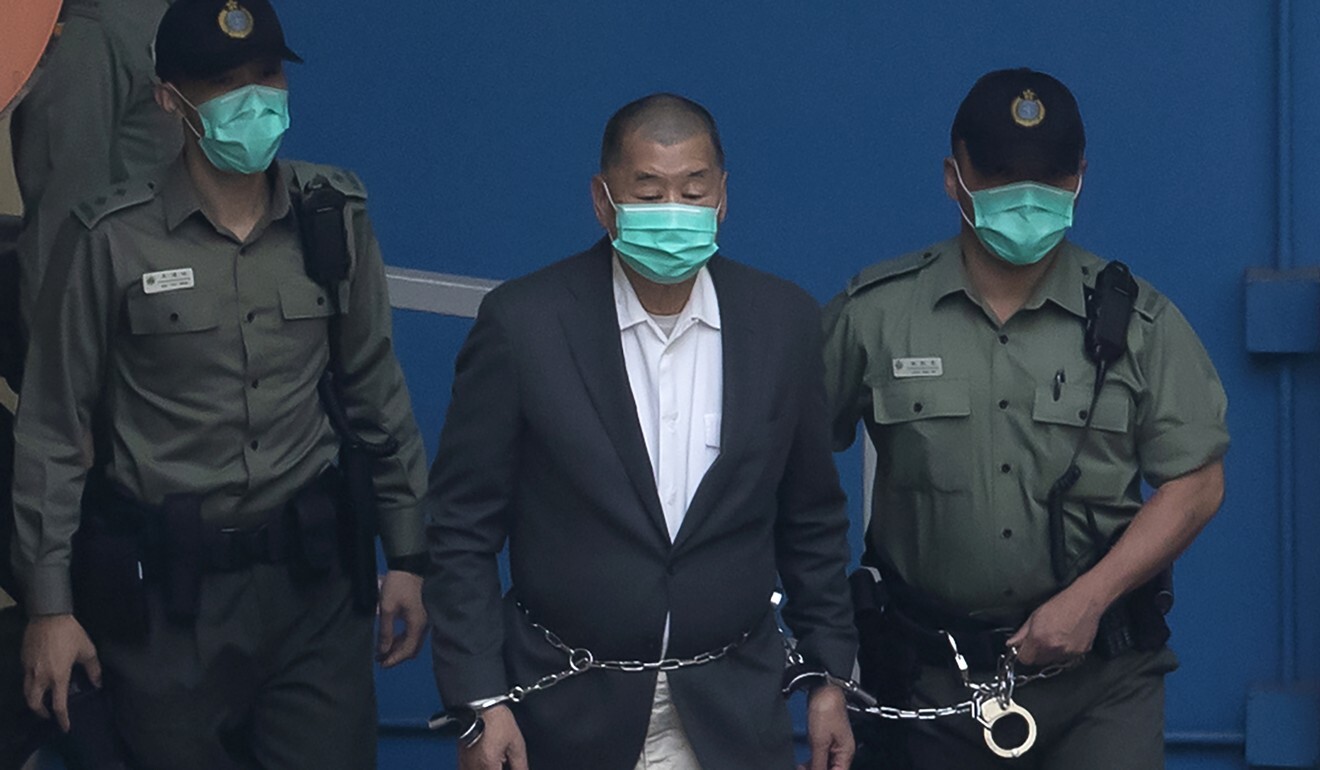
In wake of Apple Daily’s demise, European Parliament considers resolution on Hong Kong
- European Parliament action would follow strong condemnation by the US and other Western countries
- EU parliamentary resolutions are not binding but are seen as calls to action
The European Parliament is considering a new resolution on Hong Kong in response to the city’s crackdown on the Apple Daily newspaper, which was consistently critical of the local government and Beijing before being forced to shut down.
The move would represent the first action by a legislative body at the European Union over Apple Daily’s demise, after strong condemnation by the US and other Western countries.
Apple Daily’s founder, Jimmy Lai Chee-ying, was arrested on suspicion of colluding with foreign forces and endangering national security, offences that contravene the law imposed on Hong Kong a year ago by Beijing.

06:28
Hong Kong tabloid Apple Daily ceases operations after top executives arrested, assets frozen
Political parties in the European Parliament are currently working up draft texts for a resolution, which will then be negotiated and worked into a single document. This is likely to be debated and voted on next Thursday morning as an urgency resolution at the plenary session in Strasbourg, according to multiple sources familiar with the issue.
A decision will be taken on Thursday morning this week as to whether to add it to the agenda, when the political groups propose topics for “urgency resolutions” to the Parliament’s Council of Presidents, with one MEP describing it as “a formality”.
Parliamentary resolutions are not binding for other EU agencies, rather they are seen as calls to action for the European Commission and the Council.
US bill proposes special status for Hongkongers threatened by security law
There have been a number of Hong Kong-related resolutions over the past 18 months, including one on the national security law “and the need for the EU to defend Hong Kong’s high degree of autonomy”, which was adopted in June last year.
This called for “Magnitsky-style sanctions on the leaders who conduct this crackdown on Hong Kong and its people and are responsible for serious human rights abuses”.
In the year since then, no such sanctions have been adopted, with the EU struggling to garner support among member states for any sort of action on Hong Kong.

On two separate occasions this year, Hungary had vetoed efforts by the EU’s foreign ministers to issue new measures on Hong Kong in response to the national security law and the Beijing’s reform of the city’s electoral system, which Brussels views as an erosion of the “one country, two systems” model of governance agreed in the handover of the territory from Britain to China in 1997.
Among these actions were the suspension of the remaining 10 extradition treaties held by EU members with China, mechanisms to make it easier for Hongkongers to emigrate to the EU, and a full review of the broader EU relationship with Hong Kong.
Hungary also torpedoed a critical statement by the EU’s 27 foreign ministers, which was subsequently released unilaterally this month under the sole name of Josep Borrell, the EU’s top diplomat.
Next Digital to cease operations on Thursday, vows to try and pay staff
The EU last week said the closure of Apple Daily was “seriously undermines media freedom and pluralism, which are essential for any open and free society”.
“The closure of Apple Daily’s Hong Kong operations clearly shows how the National Security Law imposed by Beijing is being used to stifle freedom of the press and the free expression of opinions. The erosion of press freedom is also counter to Hong Kong’s aspirations as an international business hub,” it read.
It added that freedom of the press is “enshrined in the Basic Law, and that China made international commitments under the Hong Kong Basic Law and the Sino-British Joint Declaration of 1984”.

04:36
Hong Kong press freedom is at centre of ‘one country, two systems’
However, political figures think it unlikely that major legislative action will be taken in response to the deteriorating situation in Hong Kong, which has seen dozens of opposition politicians and pro-democracy activists arrested.
“Hong Kong, and with all due respect, is not going to be number one on the priority list of the European Union,” Alexander Stubb, the former prime minister of Finland, told the Post.
“It might have been dealt with a little bit differently had the United Kingdom still been a member of the European Union, but because it‘s not, Hong Kong is seen as obviously a prosperous centre, but at the same time as part of China.”
“The priority list is very simple. It’s China first, and Hong Kong second. There are enough issues, such as Taiwan, Hong Kong, the Uygurs, the Belt and Road Initiative, to deal with there without a full focus on Hong Kong,” he added.

